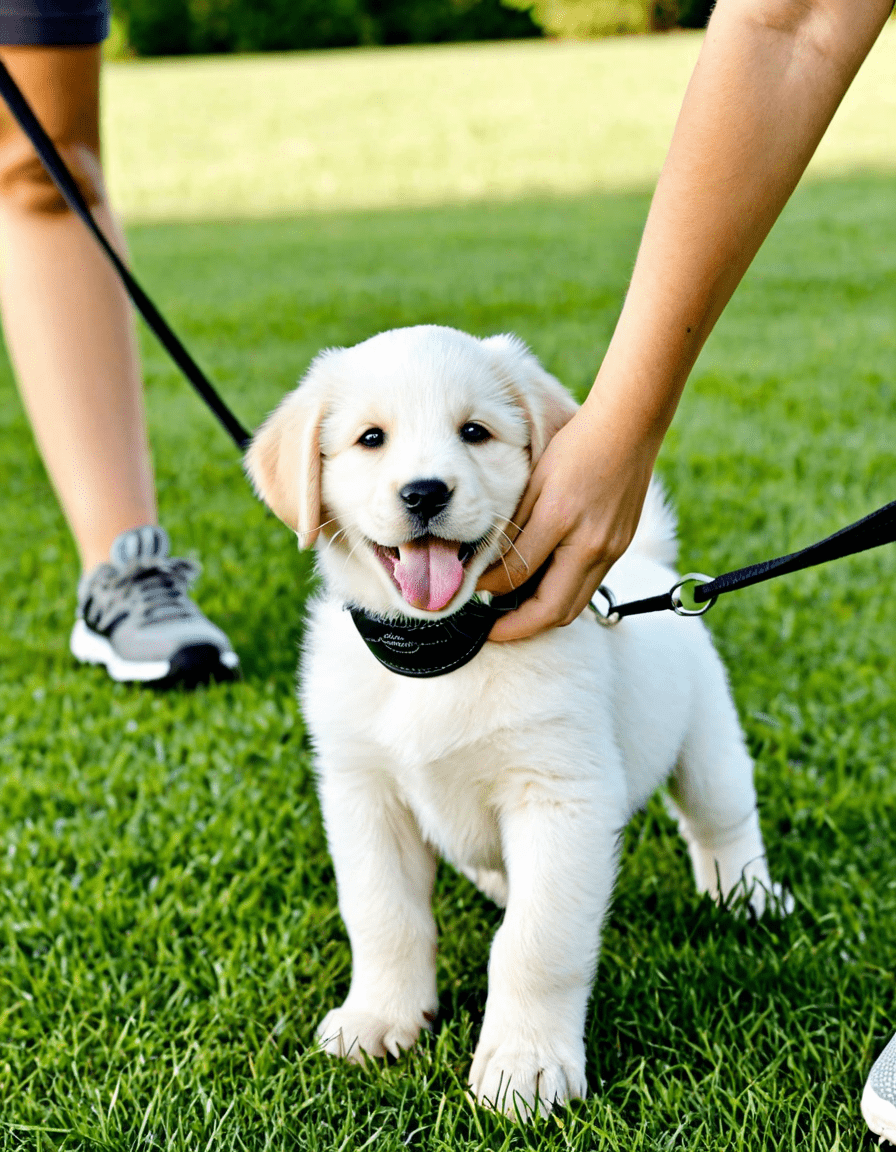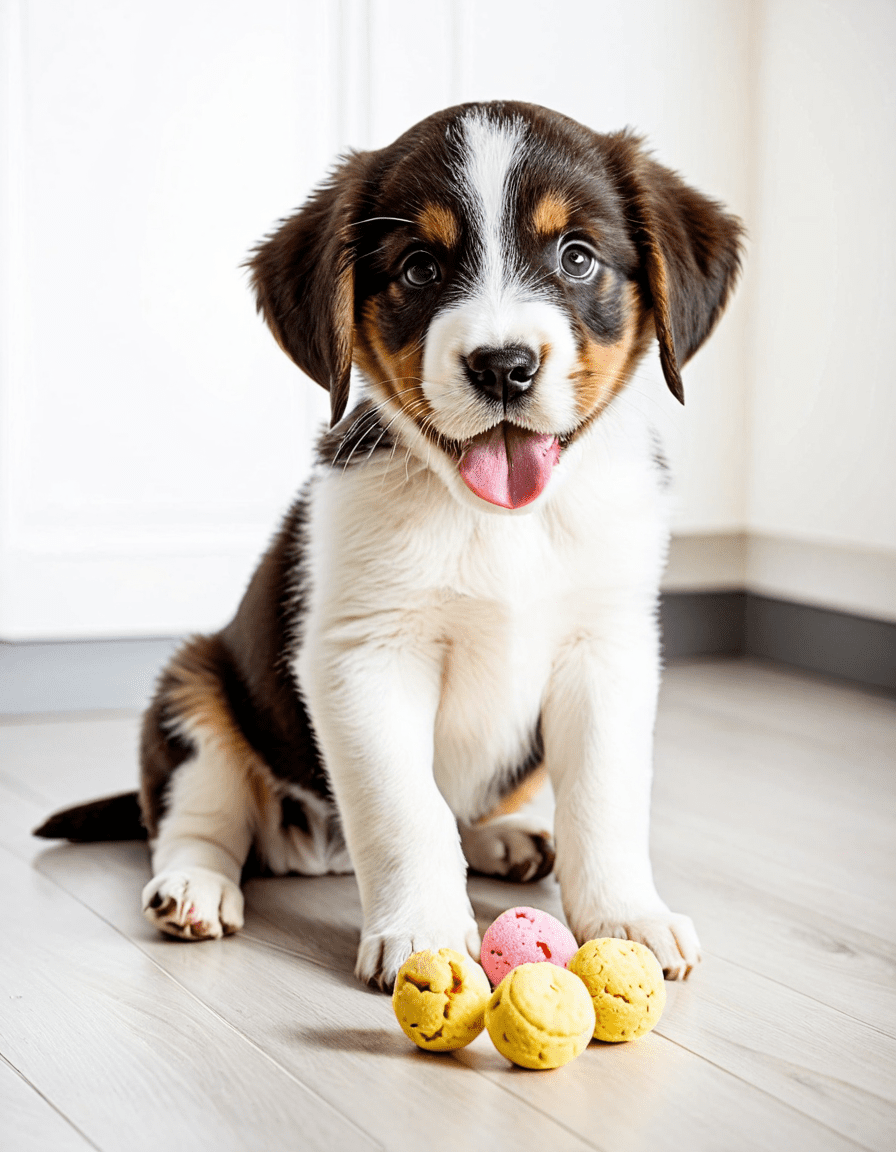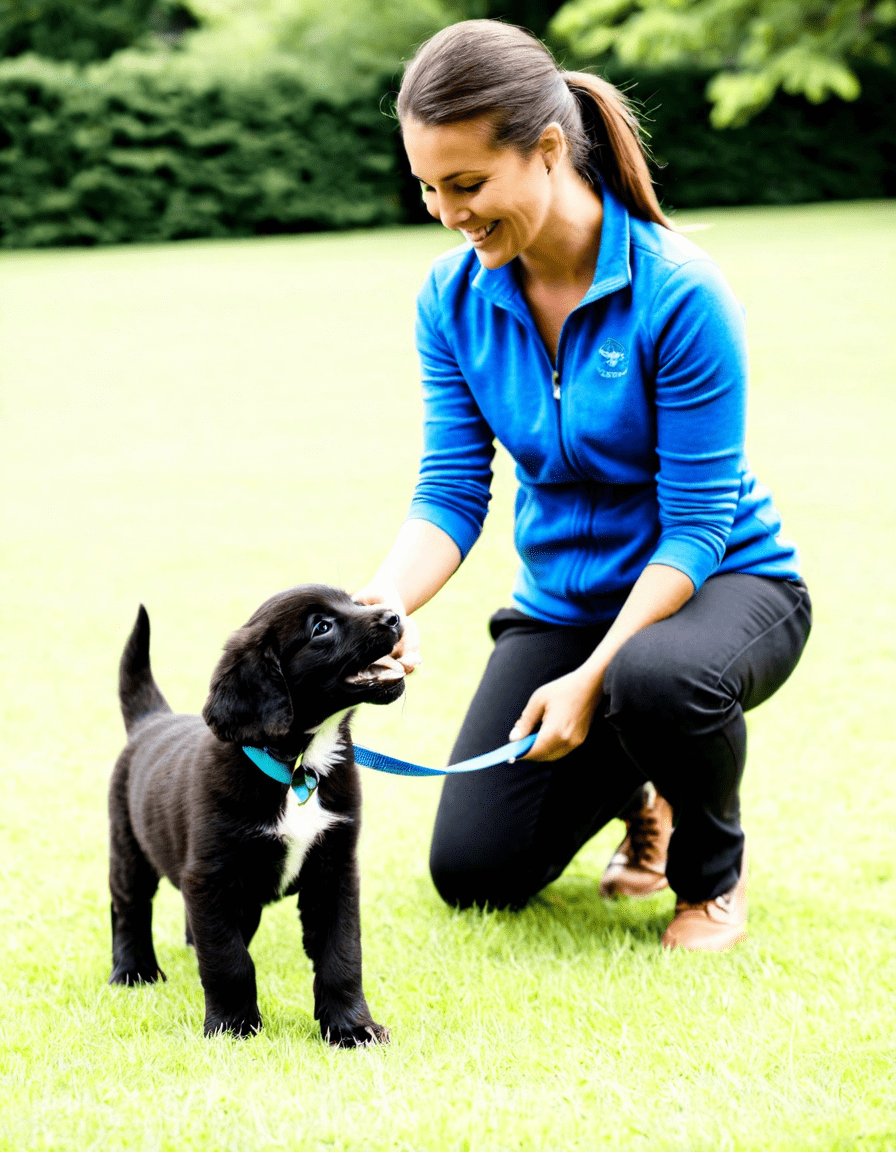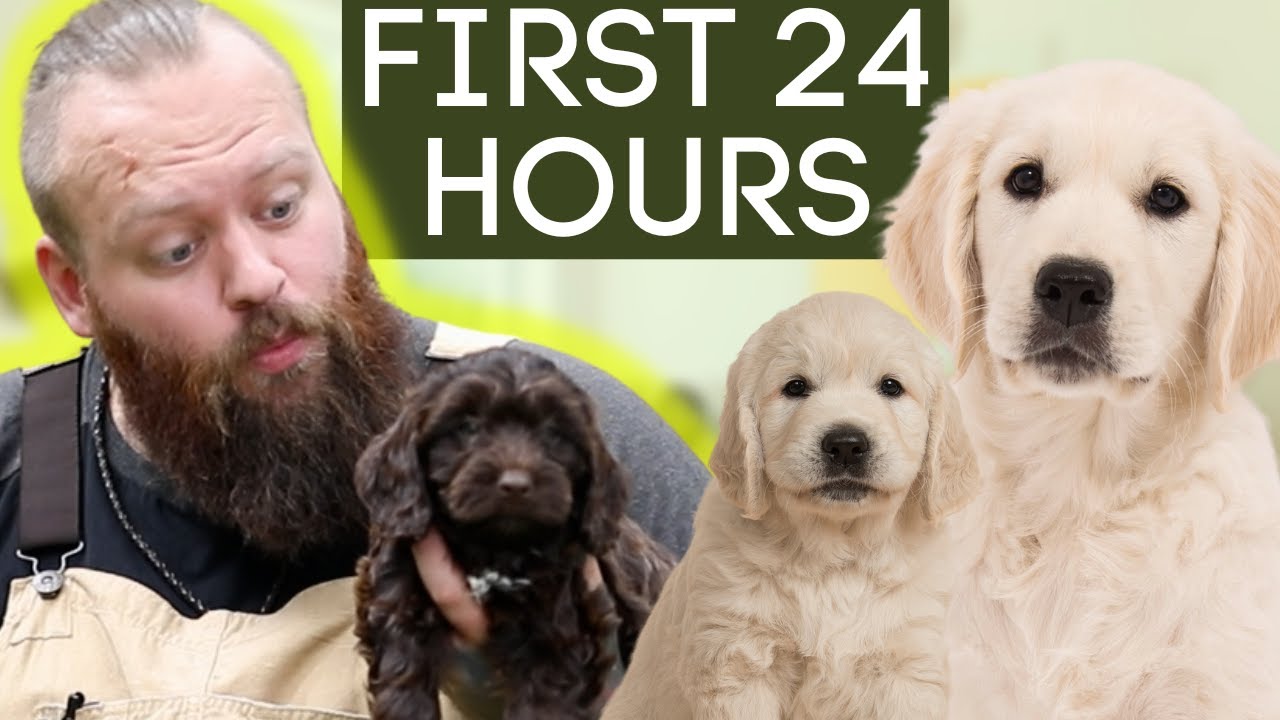Training a puppy is an exciting journey that sets the stage for a well-behaved adult dog. One of the essential questions new owners find themselves asking is, When to begin training a puppy? Timing is everything. Starting training at the right moment fosters effective communication and builds a lasting bond between owner and pet. In this guide, we’ll delve into the optimal timing for puppy training and share the keys to achieving lasting success.
Top 5 Key Considerations for When to Begin Training a Puppy

1. Age Matters: The Ideal Starting Point
Age is crucial when it comes to training. Puppies are most receptive to learning between 8 and 16 weeks of age. During this time frame, they’re naturally curious and enthusiastic about new experiences. Dr. Ian Dunbar, a renowned veterinary behaviorist, emphasizes that early socialization and exposure to diverse settings can help mitigate future behavioral problems. So, as soon as you bring your puppy home, it’s beneficial to kickstart their training journey.
2. Socialization at an Early Age
Socialization is just as important as teaching basic commands. Introducing your puppy to different people, animals, and environments before they hit 14 weeks helps them develop confidence and adaptability. The American Kennel Club (AKC) strongly recommends enrolling your pup in socialization classes, which can begin at 8 weeks. These classes offer a structured, enriching environment for your puppy to interact with others, setting a solid foundation for good behavior.
3. Understanding Your Puppy’s Learning Capabilities
Puppies learn at different rates, but around 12 weeks is typically the sweet spot for picking up basic commands, like “sit,” “stay,” and “come.” It’s vital to utilize positive reinforcement methods—think tasty treats from brands like Blue Buffalo or fun playtime. These rewards can really help your puppy grasp these commands and strengthen their memory, ensuring they understand what you expect.
4. How to Break a Dog from Peeing in the House
Housebreaking should be one of your top priorities. Start as soon as you bring your puppy home. Using techniques like crate training combined with a consistent outdoor schedule can work wonders. Schedule immediate bathroom trips right after meals, playtime, or naps to help your puppy compile a routine that reduces indoor accidents. You can read more about How To train a dog To pee outside for tips on this essential process.
5. Effective Strategies for When to Discipline a Puppy
When it comes to correcting unwanted behaviors, it’s important to steer clear of harsh punishments. Instead of focusing on how to punish dogs for pooping in the house, focus on redirection and positive reinforcement. If an accident happens indoors, calmly interrupt with a firm “no” and swiftly take your puppy outside. Remember, negative punishments can lead to anxiety, which may worsen the problem.
Training Techniques for Lasting Success
Positive Reinforcement: The Power of Rewards
One of the most effective training techniques is positive reinforcement. Using rewards such as tasty treats, enthusiastic praise, and playtime emphasizes what good behavior looks like. Tools like clickers can also enhance your communication during training sessions, quickly reinforcing desired behaviors.
Consistency is Key
Consistency postures learning for your puppy. Set a regular routine that includes scheduled feeding times, bathroom breaks, and training sessions. This consistency reinforces what your puppy is learning and helps them know what to expect throughout the day.
Patience and Adaptability
Every puppy has a unique learning style. Some are social butterflies, while others are a bit more reserved. Tailoring your training methods to fit your pup’s personality can lead to much better outcomes. Always maintain a patient approach, allowing your puppy to learn at their own pace.
Ongoing Training: Building on Basics
Training doesn’t stop once your puppy learns basic commands. Keep them mentally stimulated with ongoing educational opportunities. Consider engaging in agility training or enrolling in professional obedience classes to further strengthen your bond and keep learning alive.

The Importance of Professional Guidance
If you feel overwhelmed during your training efforts, or if your puppy exhibits behavioral issues that seem unmanageable, consult a professional dog trainer. Look for individuals who are certified by organizations like the Association of Professional Dog Trainers (APDT). This ensures you’re receiving guidance rooted in proven, science-based practices.
In summary, knowing when to begin training a puppy is crucial for nurturing a well-adjusted adult dog. By understanding the most effective times to engage your puppy and employing proper training strategies, you’ll set the stage for a wonderfully harmonious relationship. Embrace the journey with joy and patience, making the most of your puppy’s formative months to pave the way for lasting success. A well-trained puppy not only enriches your life but also creates a fulfilling companionship that lasts a lifetime.
For those looking to expand their knowledge about puppy care and training, check out our articles on can Dogs eat barley and How To care For baby Chicks. Remember, it’s all about building a solid foundation for your furry friend’s future!
When to Begin Training a Puppy for Lasting Success
The Critical Early Days
So, when to begin training a puppy? The short answer is right from the moment they step into your home, but there’s a bit more to it than that. Puppies are like little sponges, soaking up everything around them. Surprisingly, research shows that the sensitive period for socialization occurs between 3 and 14 weeks old. This is the golden window for establishing good behaviors. Just like how a city deals with emergencies, such as the recent Philadelphia fire, early socialization helps puppies learn to cope with different environments and challenges in a controlled way.
Additionally, engaging in this training phase can support their mental development. Have you heard about Gluconeogenesis? It’s a fancy term for how our bodies, including those of our furry friends, convert certain nutrients into energy, vital for their growth. Similarly, when puppies are trained early, they develop better behavioral energy in various situations.
Fun Facts About Puppy Training
You might be curious about some quirky facts surrounding early training. Did you know, for instance, that puppies can learn simple commands as young as 8 weeks old? That’s like teaching a toddler to say “hello.” Research indicates that speaking to puppies in a clear, cheerful tone helps them understand and remember commands. Just like some people fondly reminisce about those catchy Milli Vanilli Songs, which bring back memories, teaching commands can create lasting bonds with your pup.
Also, when asking questions about food, many pet owners wonder, can Dogs eat hamburger? Well, in moderation, yes! Just like training, it’s all about balance and ensuring what they consume contributes to their overall well-being. Lastly, exploring habitats like Brainerd can also give you insights into various canine cultures and the diverse traits different breeds exhibit. Just remember, no matter the training method, it’s about patience and consistency!
So, in summary, when to begin training a puppy is key to their lifelong success. Starting early offers a foundation for the future. As you guide them through these phases, it’ll be like being Craig Jones in a melody—creating a harmonious relationship between you and your furry companion.






